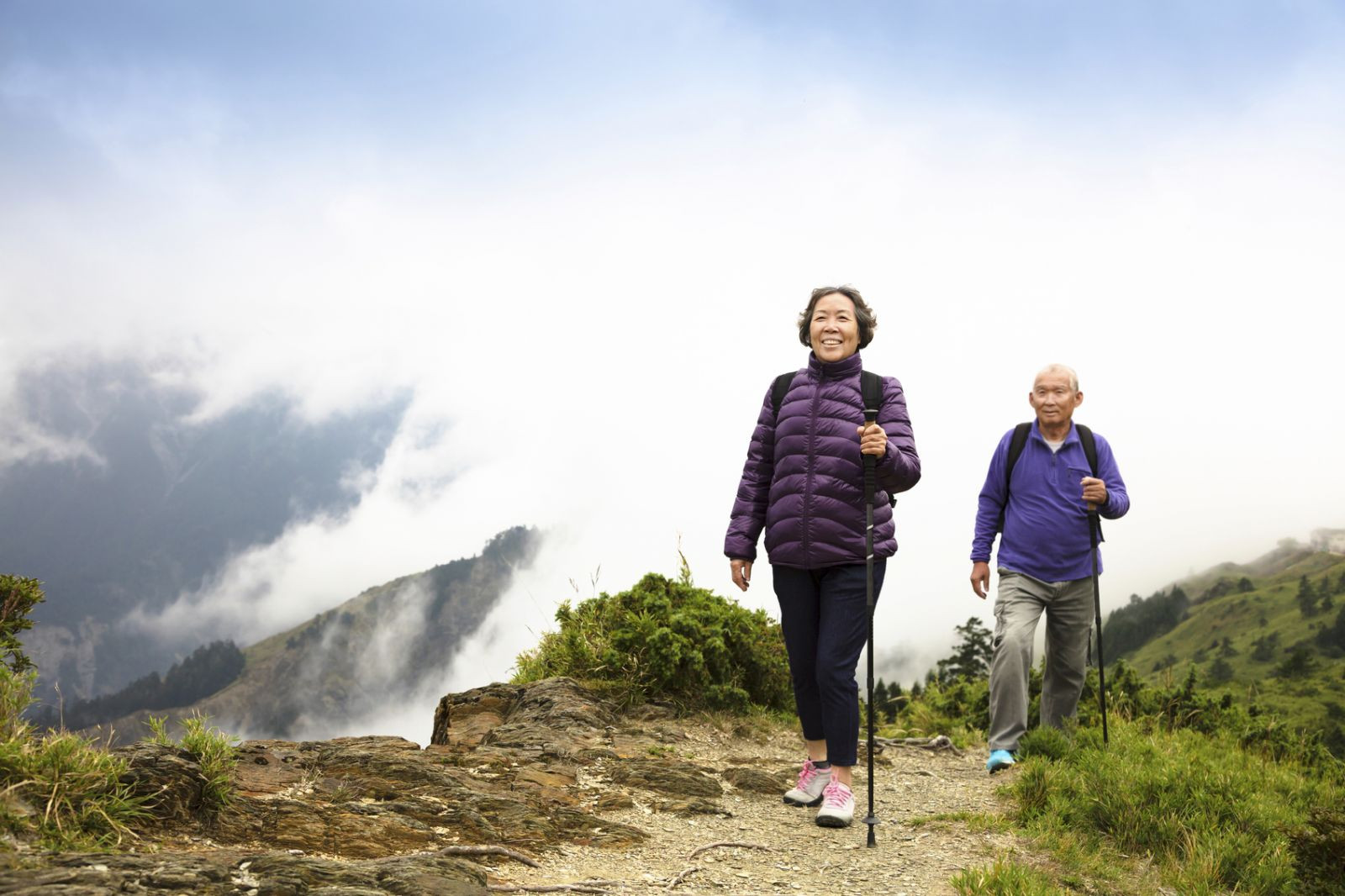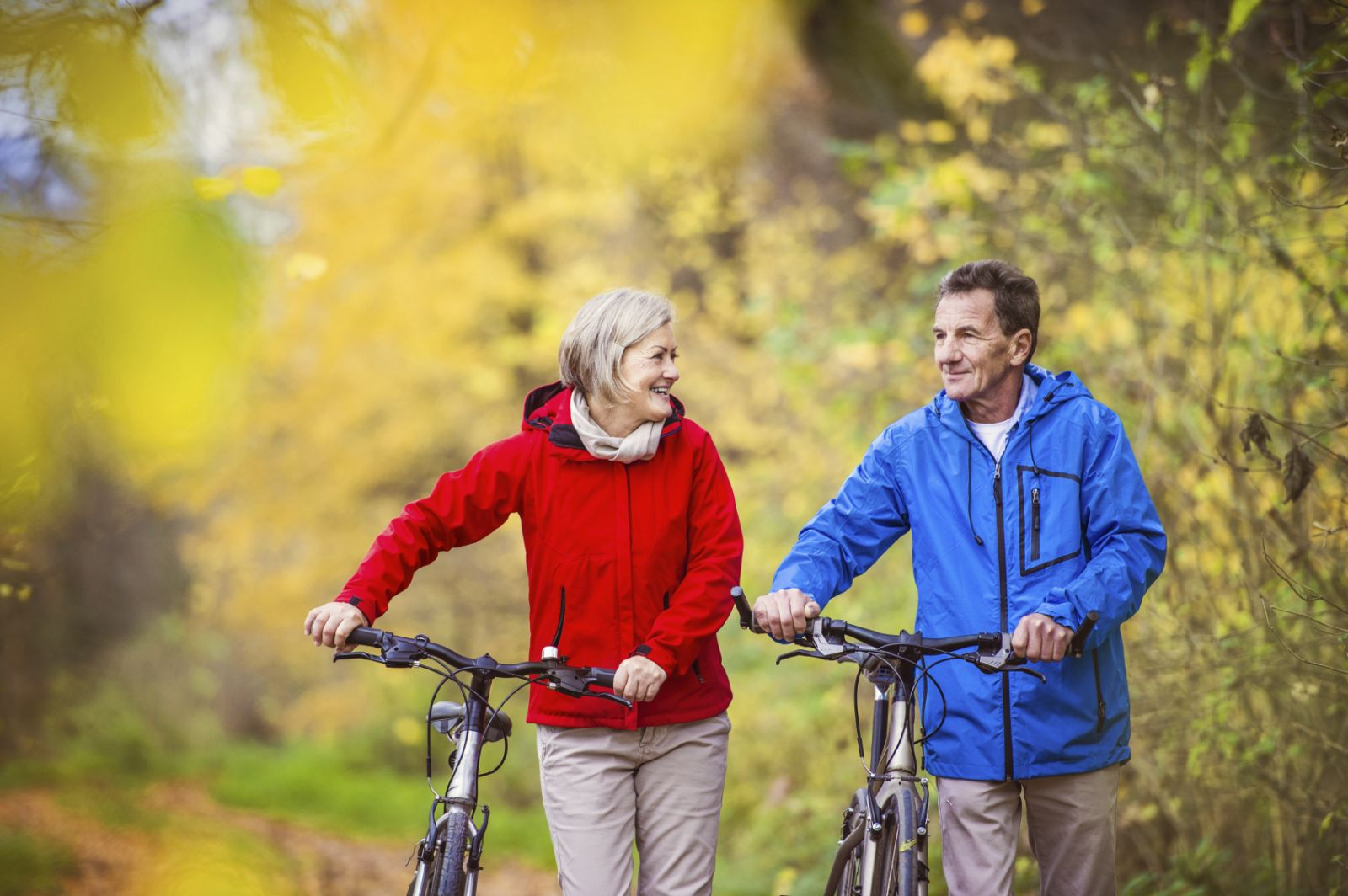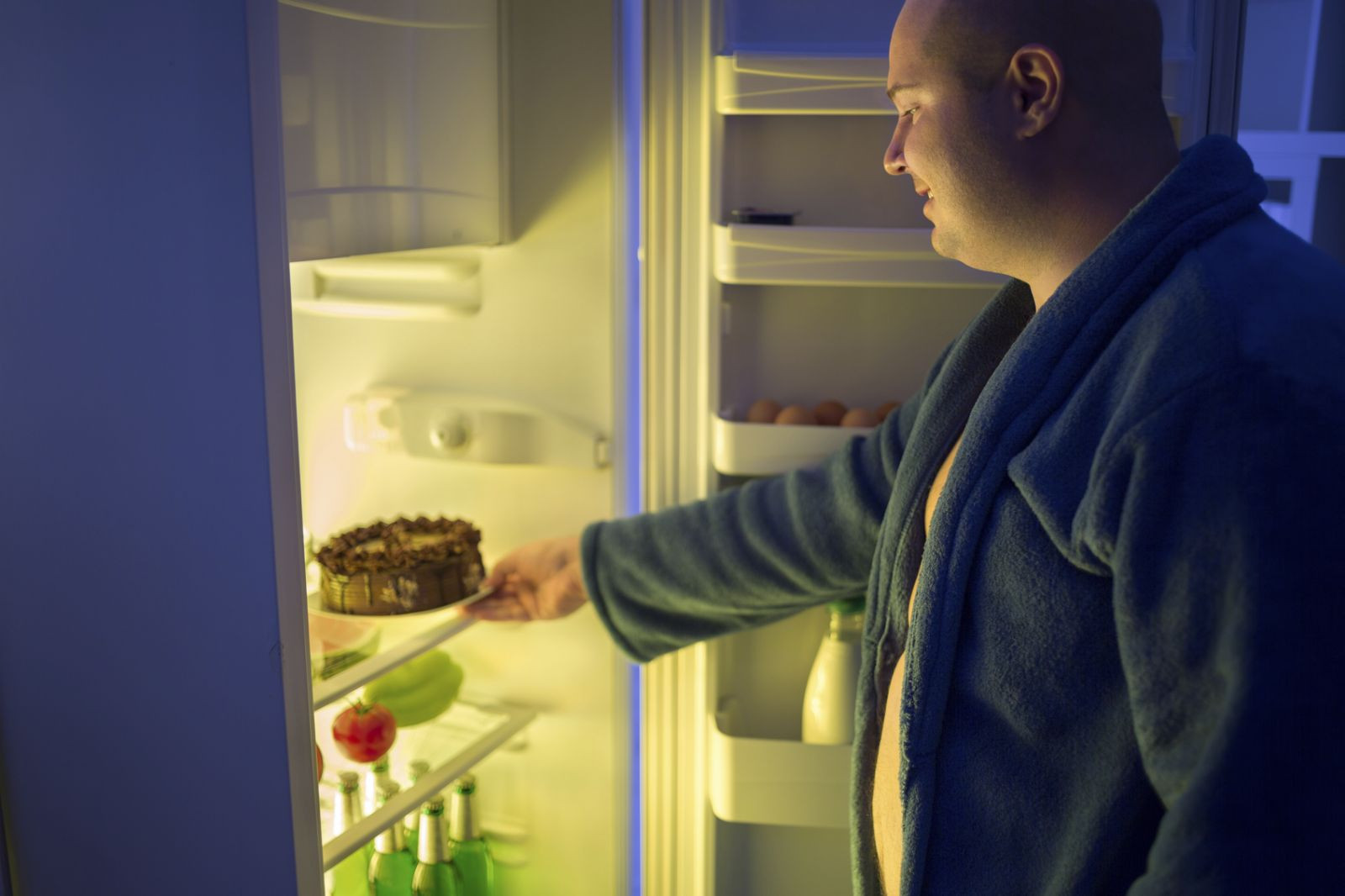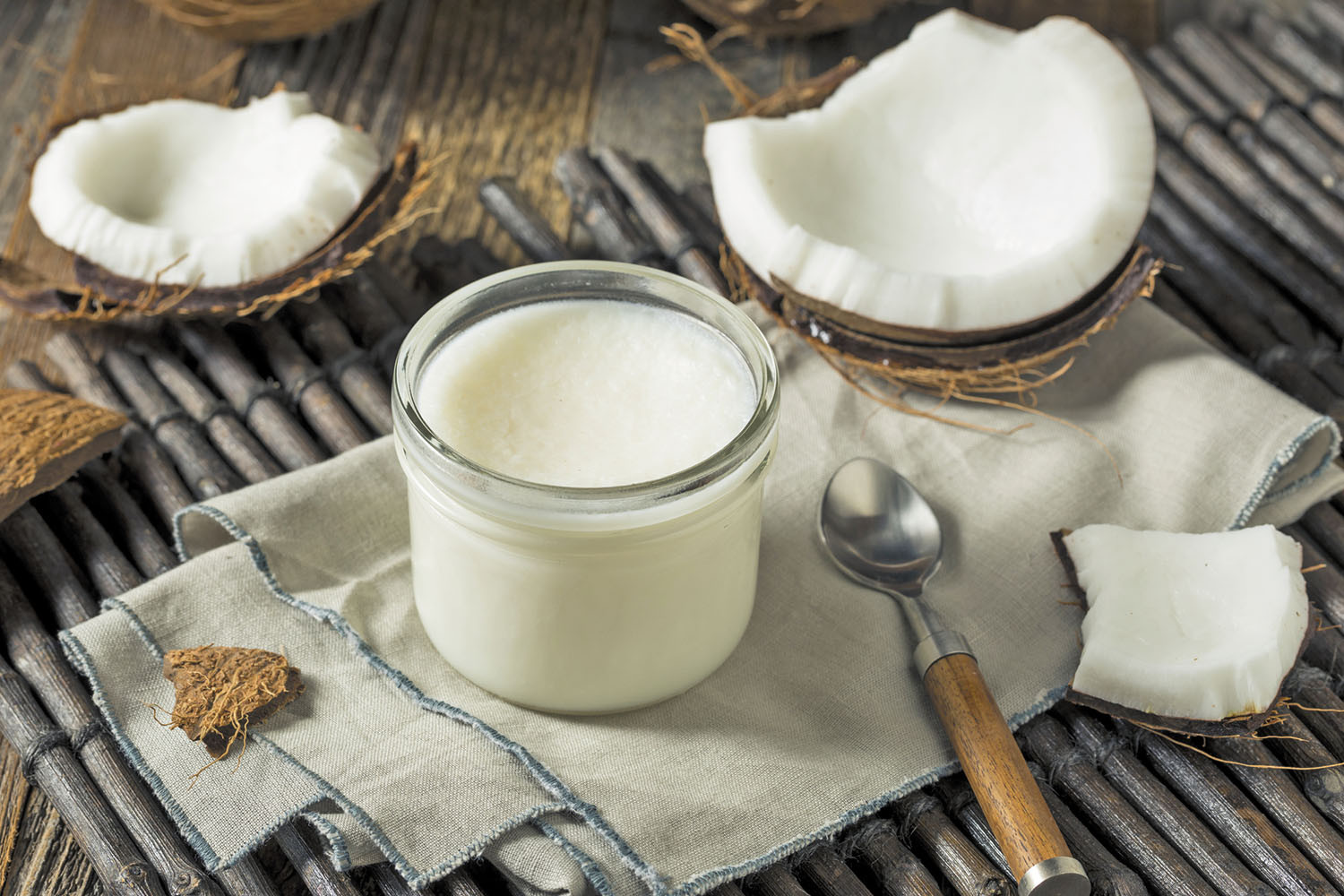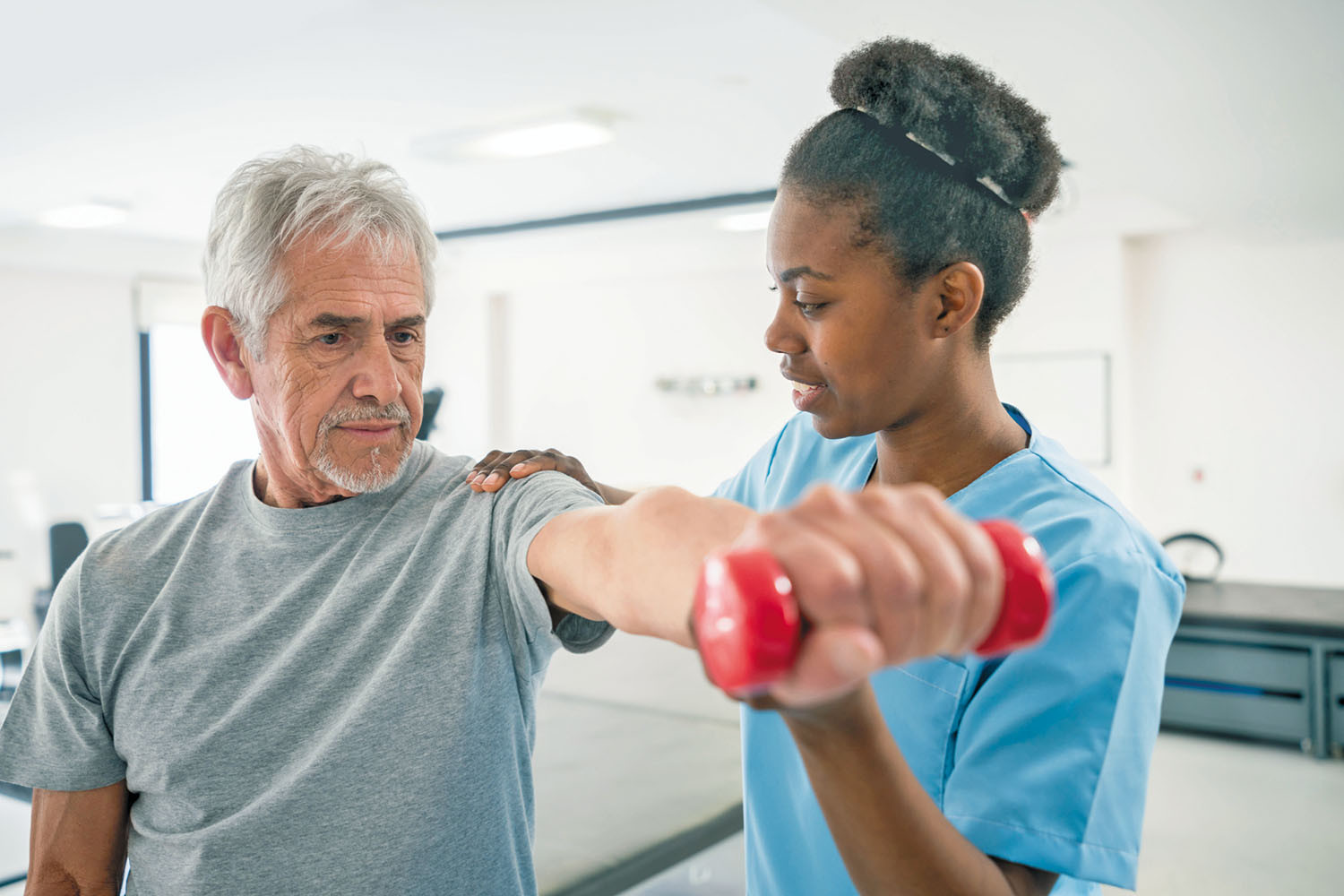
Counting steps is good — is combining steps and heart rate better?

Appendix pain: Could it be appendicitis?

Can saw palmetto treat an enlarged prostate?

How does Ozempic work? Understanding GLP-1s for diabetes, weight loss, and beyond

Zinc: What it does for the body, and the best food sources

Respiratory health harms often follow flooding: Taking these steps can help

Tips to leverage neuroplasticity to maintain cognitive fitness as you age

Can white noise really help you sleep better?

Celiac disease: Exploring four myths

What is prostatitis and how is it treated?
Staying Healthy Archive
Articles
5 tools to maintain your mobility
A variety of assistive devices can improve balance, provide support, and prevent further disability.
Image:iStock
If you're recovering from an injury or surgery, struggling with arthritis, or having trouble with your balance, your doctor may recommend one or more assistive devices—simple tools that have been shown to prevent falls and injuries and preserve your mobility. Don't let pride or vanity keep you from using them. "Maintaining your mobility—the ability to move easily around your home and neighborhood, stay connected to your loved ones, and remain engaged in the world—can safeguard your independence," says Dr. Scott Martin, associate professor of orthopedics at Harvard Medical School and medical editor of the Special Health Report Mobility and Independence (www.health.harvard.edu/MI).
Once you begin to shop for an assistive device, you may be surprised at the selection that awaits you. Whichever type is recommended for you, you'll need professional help with "fitting," so that you can use it safely and comfortably.
Exercise: Rx for overcoming osteoarthritis
Exercising may be the last thing you want to do when your joints are stiff and achy. But exercise is a crucial part of osteoarthritis treatment in order to ease pain and stay active.
Osteoarthritis is a chronic and progressive disease characterized by loss of the cartilage that covers and protects the ends of the bones where they meet at a joint. Without this protective coating, bone rubs against bone, causing irritation and inflammation. The result is pain and stiffness in the joint and often pain in the muscles and ligaments that surround it.
Why people become overweight
Everyone knows some people who can eat ice cream, cake, and whatever else they want and still not gain weight. At the other extreme are people who seem to gain weight no matter how little they eat. Why? What are the causes of obesity? What allows one person to remain thin without effort but demands that another struggle to avoid gaining weight or regaining the pounds he or she has lost previously?
On a very simple level, your weight depends on the number of calories you consume, how many of those calories you store, and how many you burn up. But each of these factors is influenced by a combination of genes and environment. Both can affect your physiology (such as how fast you burn calories) as well as your behavior (the types of foods you choose to eat, for instance). The interplay between all these factors begins at the moment of your conception and continues throughout your life.
By the way, doctor: Is it okay to take ibuprofen p.m.?
Q. I take ibuprofen p.m. on occasion — maybe once a month or so — to help me get to sleep. It seems to work. Is that okay?
A. Ibuprofen p.m. is a combination medication that contains ibuprofen and diphenhydramine, which is the active ingredient in Benadryl, an antihistamine taken for allergies.
On call: Measuring the PSA Is fasting necessary?
Q. I have always had my blood tests taken the first thing in the morning, before I've had breakfast. We've just moved to a new home and I'll have a long commute to the hospital, so I'd like to eat before I start out. My cholesterol has always been great, so my doctor said a light breakfast won't interfere with cholesterol tests. But he didn't know if eating would change my PSA result. What do you think?
A. At last — a PSA question with a simple, un-equivocal answer: Breakfast will not affect your PSA result, nor will lunch or dinner. In June 2005, doctors proved the point by measuring PSA levels three times over the course of a single day in 80 patients with an average age of 62 years. The samples were obtained before breakfast, after breakfast, and after lunch — and there were no changes in the PSA results.
By the way, doctor: How often should I have a colonoscopy?
Q. How often should a healthy 55-year-old woman have a colonoscopy? Do the benefits outweigh the risk of complications, such as bowel perforation?
A. Colonoscopy is one of several tests used to screen for colorectal cancer, the third most common cancer and cause of cancer mortality (after breast and lung cancer) in American women. In 2018, some 140,000 Americans were diagnosed with the disease, and 50,000 died of it. Experts believe that adequate screening could have prevented perhaps 60% of those deaths.
By the way, doctor: What can I do about excessive belching and feeling full?
Q. I belch a lot and get a feeling of fullness in the upper abdomen. Is excessive belching a common condition? What are the causes and cures? I would prefer natural remedies.
A. Belching and feeling full are normal, everyday experiences. So, what makes them "excessive"? There's no precise definition. But if you start belching or feeling full more often than you have in the past, or if belching and fullness are causing you distress and discomfort, then I'd consider that excessive belching and a problem that you should try to solve.
By the way, doctor: Does having ridged and split fingernails mean I'm unhealthy?
Q. I'm 63, and I've begun to notice a decline in the quality of my fingernails. They have numerous up-and-down ridges, and at the tips, they're always splitting. I've heard you can tell a lot about a person's health from the condition of her nails. What does my split nails say about mine?
A. Some changes in nails can be a sign of an underlying health problem, but the lengthwise nail ridging you describe is usually not one. It's simply a common sign of normal aging. The growth of fingernails and toenails slows as we get older, and their appearance may change. Some nails become yellowed or dull and brittle, and some or all may develop tiny longitudinal ridges. Fingernails tend to become thinner and more fragile, while toenails usually become thicker and harder.
5 food and drink fads you can skip
Trendy isn't necessarily healthy. Consider alternatives instead.
It's fun to try new foods once in a while. But when a flashy food fad gets your attention, be careful. Just because a particular food or drink is showing up everywhere doesn't mean it's healthy. Here are five trends you can probably skip.
1. Vitamin-enhanced water
Vitamin-enhanced waters have names like Propel Vitamin Boost and Vitaminwater, and they promise lots of vitamins (like B, C, and E) and minerals (like magnesium, calcium, and potassium) in every gulp. But don't start guzzling. "There aren't enough nutrients added to these waters to make a difference in your health. I saw one product with 10 milligrams of potassium. The recommendation for daily potassium is 4,700 milligrams per day," says registered dietitian Kathy McManus, director of the Department of Nutrition at Harvard-affiliated Brigham and Women's Hospital. "You'll get more far more nutrients from a healthy diet."
Fight back against muscle weakness
Pinpoint the cause and take steps to preserve your mobility and independence.
Muscle weakness is sneaky. It often appears gradually and makes once-simple tasks harder — like having to rock back and forth to get out of a chair or tug a few times on the car door to open it.
More than an inconvenience, muscle weakness has a domino effect on health. It slows your metabolism (how fast your body burns energy), puts more pressure on your joints, hurts your posture, throws off your balance, and limits your mobility.

Counting steps is good — is combining steps and heart rate better?

Appendix pain: Could it be appendicitis?

Can saw palmetto treat an enlarged prostate?

How does Ozempic work? Understanding GLP-1s for diabetes, weight loss, and beyond

Zinc: What it does for the body, and the best food sources

Respiratory health harms often follow flooding: Taking these steps can help

Tips to leverage neuroplasticity to maintain cognitive fitness as you age

Can white noise really help you sleep better?

Celiac disease: Exploring four myths

What is prostatitis and how is it treated?
Free Healthbeat Signup
Get the latest in health news delivered to your inbox!
Sign Up
